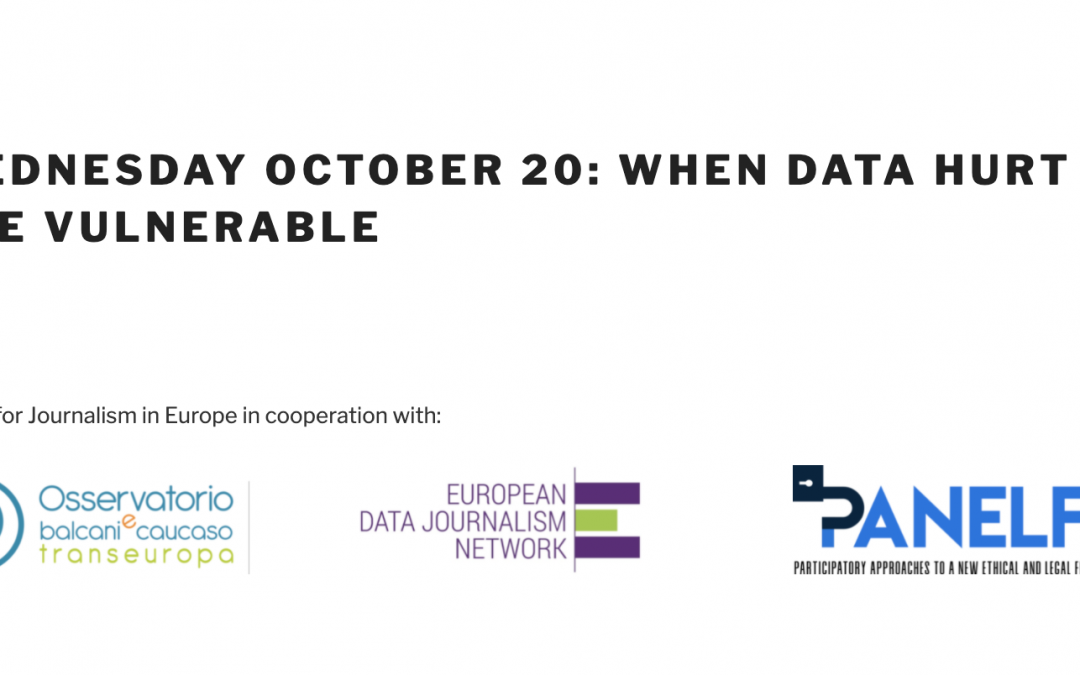On 20 October 2021, Malgieri was invited to speak about vulnerability and personal data processing. Data collection is ideally balanced with freedom to consent, however vulnerable groups are often not informed, for example when it comes to migrants at Europe’s borders or to predictions in relation to social welfare. What are the dilemmas, and how can journalists research them?
Video stream
10:00 – 11:15 Refugees, children, poor families and other vulnerable groups – how to investigate the victims of big data
Moderation: Marija Ristić, Balkan Investigative Reporting Network, contributor to The Pandemic for Digital Rights Report (slides)
Speakers:
- Camille Schyns, freelance investigative reporter, has reported on automated decisions for vulnerable families and individuals (slides)
- Klára Votavová, Voxpot (CZ), has reported on surveillance and algorithmic management at Amazon warehouses. (slides)
11:30 – 13:00: Power imbalances and freedom of consent
The collection of personal data, including biometric and ethnicity data, is being used as a standard in many contexts. The notion of consent is often disregarded, which is particularly problematic when minority and vulnerable groups are concerned. How can we ensure that consent is really informed and freely given in situations where power imbalances occur, together with cultural obstacles and emotional implications?
Moderation: Serena Tinari, investigative and science journalist, co-founder of Re-check.ch
Speakers:
- Gianclaudio Malgieri, Professor of Law & Technology, Vrije University, Brussels
- Georgios Glouftsios, Postdoctoral researcher at the University of Trento, School of International Studies, and author of “Engineering Digitised Borders: Designing and Managing the Visa Information System Palgrave, 2021.
- Stefania Milan, University of Amsterdam, Datactive project
Here the link:
https://journalismarena.eu/data-dilemmas/wednesday-september-20-when-data-hurt-the-vulnerable/


Recent Comments